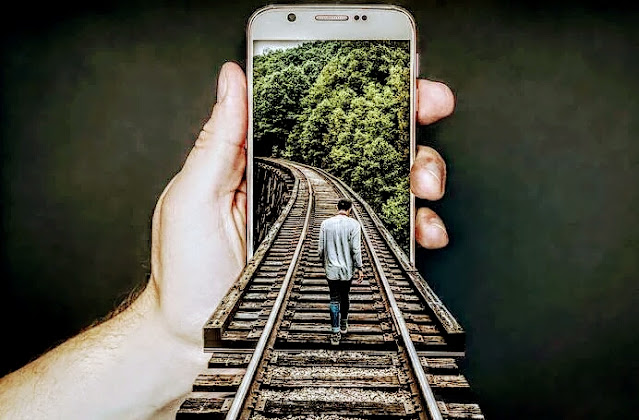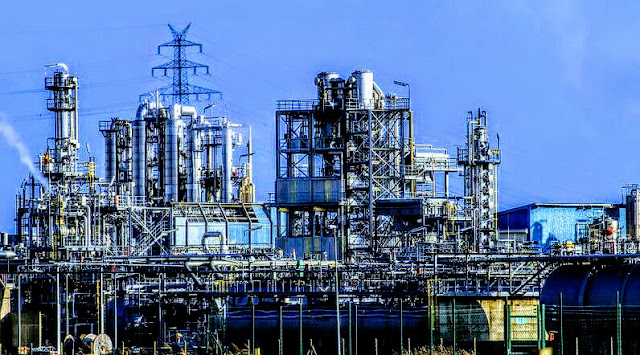Good Morning Friend,
Social Change - Religion, culture, education, mass media and the like act simultaneously at agent of social change and areas of social change .
Social Change - Change that occurs in a society may be called social change . Social change may also be considered as a process through which definite alteration in the structure and functions of a particular social system result.
Change is value neutral concept and so a particular change may be good or bad desirable or undesirable scared are profile progressive or regressive depending upon the view and understanding of the observer.
When we say that change is value free the idea is not that no distinction can be made between good changes and bad changes or between welcome changes and unwelcome development.
It is to be understood that when a particular social change acquire it will be evaluated in the light of the ideal goals the theories of the observer.
Secondly change employees continuity.
Only when certain existing conditions situations or things are partially modified we use the term change.
So change an continuity context .
Any social change may produce discernible and widespread change in social structures functions behaviour values norms ways of life attitude roles and status .
Regarding social changes psychologist have made detailed study and have formulated various theories on the direction of changes factors of change and areas of change.
If we assess the changes that have acquired in the Indian society the middle of the 19th century we notice the two direction in which such changes have proceed.
Certain changes in the traditional values and convention have been wholly beneficial and are the result of the social reform movements which had only e marginal influence on the society during this second half of the nineteenth century but gathered Momentum since 1920 when the Indian National Movement become mass.
Second set of changes which have been increasing in intensity or average throughout the 20 century particularly after independence consider the disturbing features of the present Indian society and have generally turned out to be serious problems .
Such features are increasing now explosive population increasing this organisation at all levels means materialism coupled with religiosity but without morality increase in sophisticated crime and socio - economic crime etc.
Hindi Indian contacts certain terms westernization current legislation ration are used to explain the direction of social change .
The various factors of social change our Technology, industrialisation, organisation, legislation, education economic factors, planning demography, religion and mass media .
Some of the major areas in which social change is significant in the post independent India are the caste system status of women the status and role of backward classes family etc .
This is because these institutions in track with the society in such a way as to influence and to be influencer by the society they changed social behaviour structure and value and in their turn undergo changes.
To important consequence rather manifestations of social change are social conflict and social mobility.
Link here -
Depression Treatment - Recovery Solution In India.
Technology as a agent of social changes
Introduction of new technology has always changed our communities and societies .
The modern period in the age of Technology.
While Modern Technology cannot be completely identified with westernization it has to be acknowledged that bulk of the technology used in India and elsewhere had their origin and development in Europe and USA .
With traditional Technology being used in India since long before the the advent of the British is still in uses in the form of modern cottage industries.
But with the introduction of the nuclear Technology, space Technology, Computer technology and the like profound changes have taken place and are bound to take place in the future in the Indian society.
Technology per se is value neutral and hence can be used for the good or Evil depending on the intention of the user .
Again it is to be noted that Technology affect society mainly through the process of industrialisation .
This is not to deny that certain changes in values and attitude can be directly brought about by technology for example decline in in religious belief removal of superstitions locations of scientific temper and rational approach to life and problems etc .
It is for society to decide consciously the level of Technology required in different field taking into account the economic compensation and social needs .
In general sense we may associate with technology all the social changes brought about by industrialisation itself.
We may attitude to technology remarkable changes in attitude lifestyles social structures and economic well being of the people which have taken place in India throughout the 20 century .
The martian theory which state that the modes of production in a society determine the class relation in the society and consequently the entire superstructure of political social and culture institutions in that society will also support this view.
Link here --
Home Credit Loan - Introduce All Method Solutions.
Industrialisation as an agent of social change
Since the industrial revolution of the eighteenth century all states consider industrialisation as their basic Pursuit and seek solution to their problems through industrialisation in spite of the known defects and drawbacks of intense industrialisation.
The term industrialisation here includes public and private Management Business service and other modern avenues of employment and profession .
The advanced countries complete with one another for higher and higher level of industrialization .
The developing countries consider Rapid industrialisation as their ultimate goal .
The poor and undeveloped countries yearn for industrialization and ape the industrialized countries in more than one way .
Of course modern industrialisation is based on technology more and more technology and more sophisticated Technology .
Obsolescence is an inherent feature and problem of industrialisation.
While industrialisation is affected primary to affect the economy of a country and improve it it does not produce a host of social effects .
The social changes brought about by industrialisation in India in diverse areas such as the caste system backward classes women education and mass media etc are numerous indeed .
The emergence of new classes such as capitalist industrial labour and minor.
The breakdown of caste rule and taboos in factories Rapid and safety improvement in the consumption pattern of the masses urbanisation and new types of social relation in industries brand new means of Mars entertainment and Recreation new wholly range of sport and games are bought some of the the instance of social changes producer directly or indirectly by industrialisation.
Link here --
Greatest Indians Leaders - Facebook Pages Lovers.
Legislation as an agent of social change
Legislation is a political instrument which can affect all aspects of life including the social .
It is the that legislation is used as in agent of social change.
In a liberal democracy as we have in India the government generally does not direct its attention to social problems and process unless certain desirable changes have to be brought through government till interference.
In traditional societies any change in social values Institutions and processes is generally not favoured by the people and so the states does not interfere with them .
A dictatorial tutorial States under communism Fascism or fundamentalism would like to effect radical changes in society and hence would undertakes measure to cause drastic social changes through legislation.
The British ruler in the India where generally vary of interfering with the social life and hence did not initiate social changes in the form of social reformer .
As a result certain social evils and undesirable social practices continued for a long time .
Lord Bentinck affected the first social legislation in 1829 by banning Sati and making it an offence through regulation.
Important social legislative measures enacted during the British rule are the Hindu widow remarriage act of 1856, female infanticide prohibition act of 1870, the special Marriage Act of 1870, the Age of Consent Act of 1891, child marriage (restraint Sharda ) act of 1929, The Hindu gains of learning act of 1934, children act of 1920, the beggary act of 1940, the factory act of 1881, the workmen compensation act of 1923 etc.
These legislative measures were aimed at preventing harmful social practices and providing a better deal for workers .
Since Independence the government have carried forward the momentum of social reforms through legislation .
The Indian Constitution prohibiting practice of untouchability and describing a number of directive principle of State Policy for the government clearly indicates that which state has to play a positive role in bringing about desirable changes through legislation.
Some of the social legislative measures introduced by the central government since Independence are the Hindu Marriage Act of 1955 , The Hindu Succession act of 1956, The Hindu adoption and maintenance act of 1956 , dowry prohibition act of 1961, the untouchability offence act of 1955 letter renamed as a civil rights act etc.
To provide a better deal for the workers and the unemployed new legislations has been made in the form of factory act of 1948, the employment exchange act of 1959 etc.
Link here --
Donation Of Donors - Explain Master Types Of In Simple Steps.
Education as an agent of social change
Education is one of the culture factor responsible for Major social changes in society .
We have already pointed out that education is a matter which is both a factor of change and and area of change .
The social change brought about by Education in modern time is many times more impressive that the changes undergone by education as a result of other social changes .
Changes in attitude Outlook basic per seat and values are the result of education.
Education also explain partially the generation gap and cultural lag in society .
Public support to social reforms and legislative reforms mother is a result of widespread education .
It is through Mass education that modernization of society can be effected substantially .
Education also promote mobility vertical and spatial .
On the other hand the education has undergone vast changes since the beginning of 19th century .
Conclusion :-
These social changes were basically introduced through government policies but many other factors where is responsible for the general acceptance of these changes.




